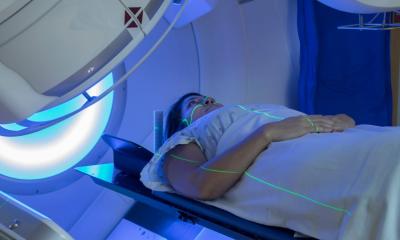
Screenshot: HiE
European Commission’s project 'XPRESS'
New online tools to facilitate green public procurement
XPRESS, an EU-funded project under Horizon 2020 research and innovation programme, has officially announced the launch of five online resources that aim to provide support to Public Procurements to facilitate the collaboration between companies and the public sector for the adoption of renewable energy sources in Europe. All tools are made available online and are free of charge.
Among the resources developed by the XPRESS consortium, three are Tenders Electronic Daily (TED)-based. Through the XPRESS website, interested parties can have access to:
- A RES tender search engine (TED-based) to facilitate SMEs’ access to tenders embracing Renewable Energy Sources. The user-friendly XPRESS RES tender search engine allows users to find the most recent calls for tenders published on TED, according to a tailored set of CPV codes (contract topics), keywords, deadline, country and type of document.
- A RES partner search search engine (TED-based) to facilitate the identification of public procurers and enterprises already involved in RES tenders based on year and country. The RES partner search engine identifies all public procurers and enterprises who, according to TED, issued or won a tender related to RES technologies.
- A Database of past SME-friendly RES tenders (TED-based) for public authorities willing to adopt RES technologies via Green Public Procurement (GPP). The third XPRESS tool is meant to encourage public buyers to implement Green Public Procurement with a set of more than 3900 SME-friendly tenders embracing RES published from 2016 to 2018, stored in an online database on XPRESS platform. All past tenders can be searched according to keywords, CPV code, year, country and budget range.
- A RES Library collecting case studies of public procurers and SMEs who implemented or awarded RES tenders and presentations of all the XPRESS workshops. The RES Library offers case studies on barriers to RES investments for SMEs and for public authorities, factsheets on LCA analyses performed by the project, and all presentations utilised during XPRESS co-creations workshops and stakeholder cafés.
- A Matchmaking Tool to facilitate connections between SMEs offering RES solutions and Public Authorities (PAs) willing to adopt them. The XPRESS Matchmaking Tool allows users to list the RES technology the offer (SMEs) or seek (PAs) and indicate the kind of support they wish to receive when it comes to GPP. The Tool will then matchmake users basing on their preferences. Additionally, each user is capable of sending contact requests to all subscribers and edit their profile, while Public Authorities can directly upload a tender allowing SMEs to express their interest in it.
The tools combined are meant to increase demand and supply sides of renewable energy sources (or RES) technologies across the EU, as a result of research performed by the XPRESS Consortium based on 2015 and 2017 Flash Innobarometer and Eurobarometer datasets; TED (Tenders Electronic Daily) dataset; EUROSTAT dataset on LCA; a survey launched on the XPRESS portal with more than 150 respondents; XPRESS co-creation workshops and more than 20 case studies.
Source: XPRESS Project
07.07.2021





